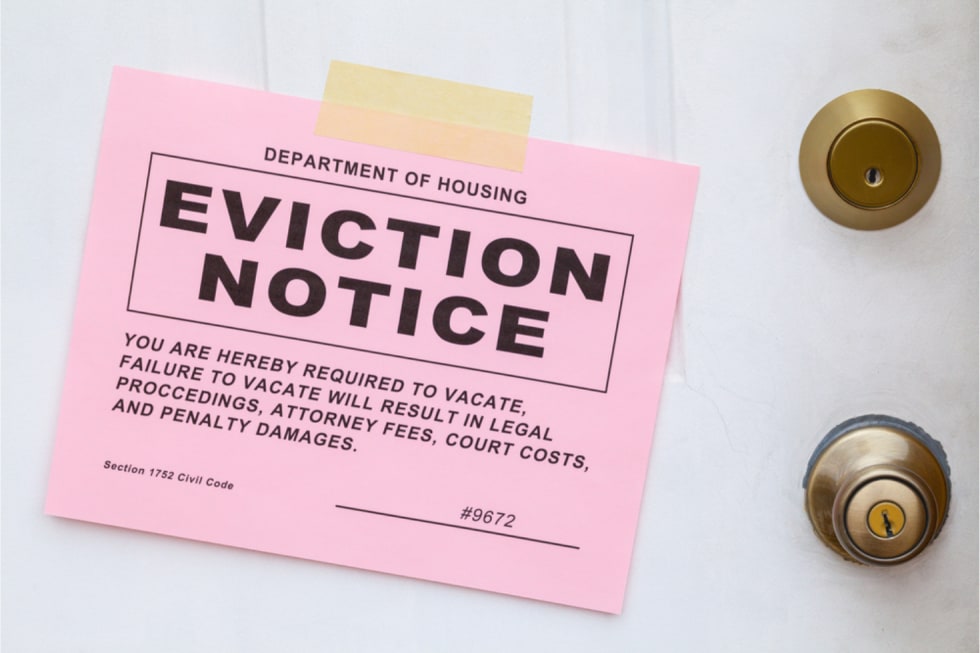Squatter Rights: What to Know as a Landlord

Navigating the complex terrain of squatter rights is an essential task for landlords. Understanding what squatter rights are, why they exist, and how they can impact your property ownership can feel overwhelming, yet it is crucial to being a knowledgeable and proactive landlord.
In this article, we aim to simplify these concepts, giving you an in-depth view of the world of squatting rights. We'll cover everything from the basics of what squatting is to an explanation of why squatters have certain legal protections. If you're dealing with a potential serial squatter, we'll provide insights on how to handle that situation as well.
What Is Squatting?

What is a squatter? Well, squatting refers to the act of occupying an abandoned or unoccupied property without the owner's permission. This act often occurs in the context of residential or commercial real estate where a property has been left empty for a long period of time. A person squatting is taking advantage of the lack of activity to establish residence without legal rights or title.
In many cases, squatters are individuals or families who, due to financial struggles or homelessness, resort to living in empty properties. However, some individuals intentionally squat on properties hoping to gain legal ownership through squatter rights or adverse possession laws.
What Are Squatter Rights?
Squatter rights, also known as adverse possession, represent a complex but integral aspect of property law. This principle can grant a squatter — the person unlawfully occupying a property — the potential to gain legal ownership without having to pay for it. However, for this to occur, the squatter must have lived on the property continuously and openly for a specified period, often several years. Moreover, the property's rightful owner must not have taken any legal action to remove the squatter during this time.
The idea behind squatter rights is not to reward unlawful behavior but to ensure that land and property are not left idle. The squatters law recognizes that property, as a resource, should be utilized effectively. Therefore, if an individual (albeit a squatter) takes the initiative to inhabit and care for a vacant property, they may eventually earn legal rights to it.
The specific duration for which a squatter must occupy a property to claim squatter rights varies from state to state. For instance, while some states require a minimum of five years of occupation, others demand up to 20 years or more. These intricacies in the law underscore the importance of landlords understanding the nuances of squatter rights in their respective states in order to protect their properties effectively.
Why Do Squatters Have Rights?

Squatters have rights due to the principle of adverse possession, an aspect of property law that's designed to ensure land isn't left unused. The law respects the right to property and its productive use. So, if a squatter has been living there openly, continuously, and without the owner's permission for a specified length of time, they effectively "adversely possess" the property and can claim rights to it.
In essence, these rights exist because the law values the active use of property. It prevents land or property from falling into disrepair due to inactivity and neglect. In this sense, squatter rights encourage the productive use of land and, in some cases, can help address housing scarcity problems.
Squatting vs. Trespassing
Although both involve occupying someone else's property without permission, squatting and trespassing are distinct in the eyes of the law. Trespassing is considered a criminal offense that involves entering or staying on another's property without consent or any legal rights. Usually, a person caught trespassing will face legal repercussions and be removed from the property immediately.
On the other hand, squatting is more of a civil matter, and the response to it is typically slower. Squatters may potentially gain legal ownership of a property if they meet certain conditions under adverse possession laws. Therefore, while both actions involve the unauthorized occupation of a property, the legal responses and potential outcomes for the occupant can be significantly different.
How to Evict a Squatter Step by Step

Evicting a squatter can be a complex process that requires understanding both local and state laws. Depending on the circumstances, you might be dealing with legal intricacies, paperwork, and court appearances. For landlords grappling with this issue, here is a step-by-step guide to handling squatter eviction correctly and legally.
Determine Whether They Are Squatters
Before you can begin the eviction process, it's crucial to establish whether the individuals occupying your property are indeed squatters. The specifics can vary by location due to different local and state laws. In general, a person could be considered a squatter when they:
- Enter the property without the owner's permission.
- Use the property as if they were the owner, sometimes referred to as "adverse possession."
- Continue to occupy the property for a significant period of time without the owner taking legal action to remove them.
Remember, if they were once tenants who have stopped paying rent, they technically don't count as squatters, and different rules apply. Misidentifying the status of occupants could potentially lead to legal complications, so it's critical to clarify this point at the very start.
Begin the Eviction Process
Once you've confirmed that the occupants are squatters, you can start the eviction process. This process typically begins by serving a written notice to the squatters, informing them of their illegal occupancy and ordering them to vacate the premises. However, if the squatters refuse to leave, you may need to escalate the matter by filing an unlawful detainer lawsuit in court.
Beware of Adverse Possession Law
Adverse possession is a critical factor to keep in mind during the eviction process. If squatters have been living openly and continuously on your property for a certain period, depending on state law, they may be eligible to claim legal ownership through adverse possession. Be aware of this potential risk and ensure you're acting promptly to protect your property rights.
Follow Any Necessary Eviction Laws
Lastly, remember that each state has its own specific laws regarding eviction. This means that the process, timeline, and legal requirements to evict a squatter can vary widely from one jurisdiction to another. It's crucial to familiarize yourself with these laws in your state and ensure you follow them closely to avoid any potential legal complications or delays.
Which States Have Squatters’ Rights?
Which states have squatters’ rights? Well, every state in the U.S. recognizes squatter rights, but the requirements for establishing adverse possession and the timeline to do so vary from state to state. Understanding the specific squatting laws of each state can help landlords know their rights and take appropriate action against squatters.
For instance, squatters’ rights in Florida require seven years of continuous possession and the payment of property taxes during that time. On the other hand, squatters’ rights in California require five years of continuous possession and payment of property taxes. Squatters’ rights in Ohio have even longer requirements, with a squatter needing to occupy a property for 21 years before they can claim adverse possession. Knowing these differences is crucial for landlords to protect their property effectively.
Final Thoughts
Understanding squatter rights is crucial for every landlord. After all, squatters are one of the common issues with bad tenants. Now that you know how to get rid of squatters, remember that knowledge is power, and staying informed is your best defense.
Got other burning questions about renting your property? We’ve got answers. Head to Apartment List to learn more and list your property for access to countless renters looking for their next dream apartment.
Share this Article





